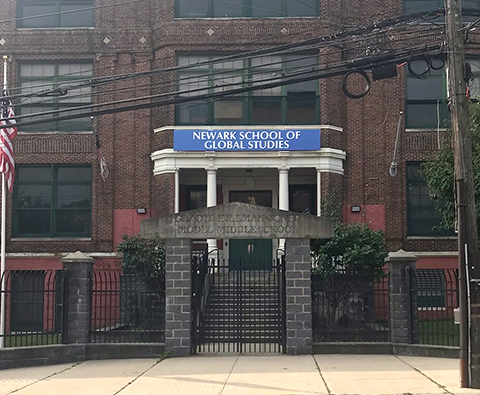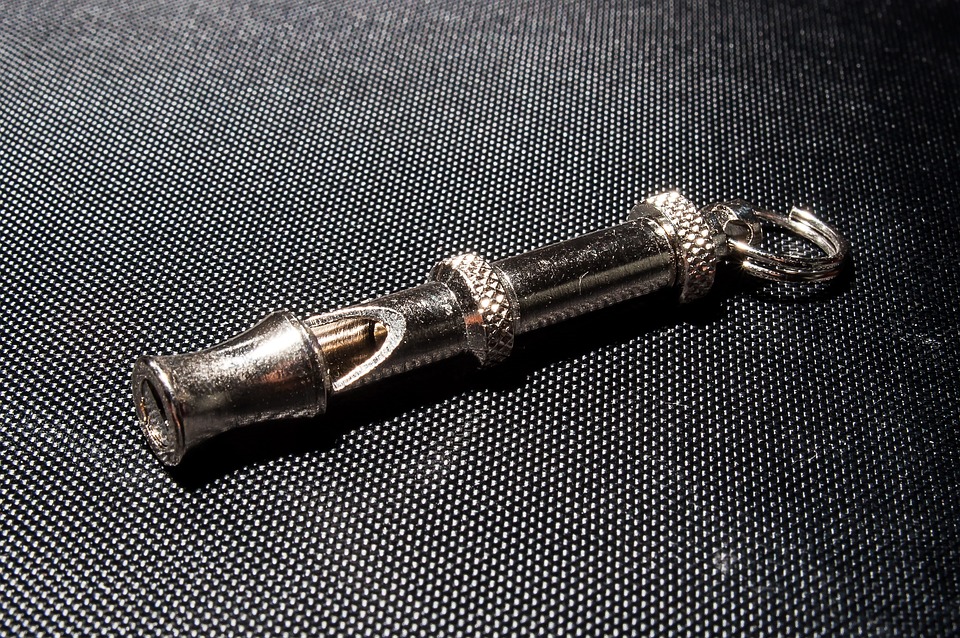
Tick-Tock of Racism Revelations at Newark High School
March 10, 2023
Here’s What Both Democrats and Republicans Are Getting Wrong About ‘Parent Rights’
March 13, 2023GASWIRTH: How Does Murphy’s Love Affair with Teachers’ Unions Compare with Christie’s?
Dr. Marc Gaswirth, a retired public school administrator, has written extensively for nearly 50 years about public sector bargaining and school human resources.
The past 15 years have been especially trying for the state’s public school employees. Many have retired while others have chosen to enter a profession other than teaching, contributing to the current teacher shortage. During this time, many school employees have felt misunderstood, mistreated and, if not under attack, at least under constant siege.
2008 saw the beginning of a sustained economic downturn and the election of Governor Chris Christie, a Republican, who unabashedly and pugnaciously ran a successful campaign on an anti-teachers’ union platform that would include curbing extensive and costly school employees’ compensation packages, and modifying the teacher tenure and pension statutes
Fast forward to March 2020, two years after Christie left office. The pandemic struck shuttered schools and forced school staff into a vastly unfamiliar virtual working environment, which resulted in substantial academic loss and behavioral regression among a substantial percentage of students that still resonates three years later.
Still, for those who currently see New Jersey school employees as an under-appreciated class, please be open to a different — and hopefully illuminating — perspective.
Beleaguered school employees can take solace that while their jobs have indeed become more complex and challenging, their employment protections remain well-ensconced in local labor agreements and in state and federal law. While certain rights and benefits contracted during Christie first term, largely driven by political and economic exigencies, others have since expanded greatly during Democratic Phil Murphy’s five-plus years in office
Only a small number of school staff are aware of these myriad employment guarantees and benefits but they are extensive, exceeding by a wide margin what most other employees receive in either the public or private sector.
It would take another lengthy column to detail the full array of labor laws and regulations that have advanced the interests of school employees and increased the bargaining power of unions that represent them. Especially since the late 1960s, previous administrations, primarily Democratic and often with bi-partisan legislative support, have been very friendly to the teachers’ union agenda.
Riding the tide of a major electoral victory in 2008, Christie, even with the Democrats solidly in control of both legislative houses, aggressively pushed his agenda to scale back school and other public employees’ benefits. In a stunning departure and with enough bi-partisan support, a historically pro-union agenda was halted and temporarily reversed during the governor’s first term.
Among Christie’s reforms — or as seen through organized labor’s lens, punitive laws — six stand out.
The first three responded to separate examples of gross contractual excesses. Following well-publicized media reports of exorbitant payouts to school district but more likely uniformed municipal employees, in some cases totaling hundreds of thousands of dollars, limits were placed on new employees hired after May 21, 2010 seeking to cash in at the time of retirement for unused accumulated sick leave. A $15,000 cap was imposed. Additionally, school employees also hired after that date could only carry over accrued vacation time in a given year to the next succeeding year, a reaction to massive balloon payments previously made to some retirees who had accumulated months, if not years, of accrued vacation time. Restrictions were also placed on tuition reimbursement eligibility, a provision that commonly appears in most negotiated agreements, when it was discovered that a school district superintendent, at district expense, had earned a doctorate from a non-accredited university.
Three other reforms boldly took on issues that the New Jersey Education Association and the smaller American Federation of Teachers viewed as game-changers, which generated intense union pushback.
First, after decades of strenuous resistance at the local bargaining table during which school districts made only slow and incremental progress toward obtaining health benefits cost-sharing concessions, public employees were still paying little, if anything, for these benefits. A new law passed in 2011 changed the equation as these employees were now required to make substantial contributions, often thousands instead of hundreds of dollars annually, for the same coverage.
Second, while cost-sharing was a signature part of the governor’s campaign, so was comprehensive teacher tenure reform. Initially enacted in 1909 and expanded after that, the tenure law was finally amended, extending by a year the time required for teachers hired on or after August 6, 2012 to earn tenure. The amended law also streamlined and expedited the process for removing employees, which previously could last years and cost school districts hundreds of thousands of dollars to prosecute a single case.
Christie’s third major legislative success further tightened the pension laws in response to a documented and significant funding shortfall. New employees could anticipate a reduction in future retirement benefits. Active employees now made higher pension contributions. Retirees no longer received cost-of-living increases; some would even have to pay a portion of the cost of post-retirement health benefits.
These changes triggered and intensified hostility toward not only Christie and his legislator supporters, but also prompted the NJEA to repeat the narrative that these reforms showed great disrespect for school employees. The messaging further suggested that teaching was no longer a desirable and worthy profession in the state, ironically a view that may work against current efforts to address the teacher shortage.
By New Jersey standards, these three legislative reforms were unprecedented, upending longstanding policies of previous administrations, regardless of the party in control, to expand union and school employees’ interests. This political aberration would end and political behavior would soon revert to the norm when Christie’s successor, Phil Murphy, was elected with strong NJEA support in 2017. The pro-union turnabout was about to begin.
First, included among the new governor’s many proposals were efforts to reduce school employees’ health benefits costs and further increase paid and unpaid leave opportunities. Flushed with money from an unanticipated over-performing economy and federal Covid funds, the Murphy administration has consistently delivered the mother’s milk—increased funding to the state’s education establishment. For the coming fiscal year, NJ.com reports the proposed budget includes a $1billion dollar increase in education funding, a nearly 10% increase raising total spending to $10.75 billion.
Organized labor and other special interest groups strongly favor higher annual funding allocations. For a large majority of school districts increases in state aid help to mitigate staff layoffs, pay the costs of local labor agreements, and expand programs. They also inject much needed money into the underfunded state pension systems.
And that was not all!
Reacting to the Supreme Court’s 2018 decision in Janus, Murphy signed into law important procedural protections intended to increase union dues-paying membership. The decision no longer requires non-union members to pay an annual fee to the union typically amounting to 85% of regular members’ dues. The law now allows labor organizations to negotiate access to a school district’s email system and provides them with quicker and easier access to the names and contact information of new hires, ostensibly to assist union recruitment efforts.
Several months after the pandemic impacted the state in March 2020, all school employees received an unusual legal guarantee: Retention of their positions, seniority, and salary and benefits should the governor declare a public health emergency.
A third law gave all unionized support staff such as custodians, bus drivers, paraprofessionals and food service workers the right to challenge adverse employment actions such as terminations or non-renewals, and mandated binding arbitration as a final step in the process. In the past, these rights would have been addressed in local labor agreements. Now, they are legally granted statewide.
A fourth law gave all unionized support such as custodians
Another law restricted school districts from subcontracting services to private contractors while a labor agreement contract was in effect, thus ensuring that school support staff positions could be protected for years even if school districts encountered unforeseen financial emergencies. Christie had previously vetoed identical legislation
Interestingly, the last three laws were enacted in 2020 while the state legislature was operating virtually and media coverage was largely focused on the pandemic.
Governor Murphy is expected to leave office in January 2025. Few organizations are likely to miss him more than the state and local teachers’ unions. Even in the unlikely event that no other significant pro-union legislation moves forward during his remaining time in office, Murphy’s pro-labor legacy is sealed.
Both in tone and substance, the Christie and Murphy administrations’ approach to school board-union relations and the status of school employees could not have been more different.
Contrasting Murphy’s policies with those of his immediate successor starkly reveals how elections held only eight years apart in 2009 and 2017 could produce sharply different political outcomes, reflecting a major shift in legislative sentiment toward the same group of employees.
People may debate whether Christie’s policies have been effective and in the public interest, but they should not ignore the economic conditions and public mood in which he governed, which were very different from that of any of his immediate predecessors or for that matter, the current governor. Less debatable is that until the former governor took office, no other administration had seriously taken on such powerful forces and travelled such a perilous political road.
The accomplishments, however, were manifest. Mandated health benefits contributions along with increased pension payments—hit public employees very hard, effectively negating any pay increases for years. The former issue might have been avoided or at least mitigated had earlier administrations shown the political will and courage to do something once it became clear that unions were consistently refusing to make meaningful cost-sharing concessions at the bargaining table. By nearly all accounts, the anachronistic century-old teacher tenure law desperately needed revamping and updating. And, the pension laws, underfunded for years for a variety of reasons, also demand immediate attention.
For these reasons alone, even his fiercest critics should admit, albeit grudgingly, that Christie and his then supporters deserve considerable credit for tackling several critical policy issues that others had conveniently avoided.
Despite Murphy’s strong pro-labor leanings, he has so far shown limited interest in reversing the Christie reforms. Let’s hope he doesn’t because, despite the current rosy financial picture the state is enjoying, the good financial times will end at some point. Turning back the clock will only lead the state and its local government entities to future financial difficulties and challenges. Let’s also hope that before considering reversing any of Christie’s legislative successes, Murphy first pauses and reflects on the hard work his predecessor did, not to mention his record of extending protections and benefits for school employees that widen the gap with those available in the private sector.




